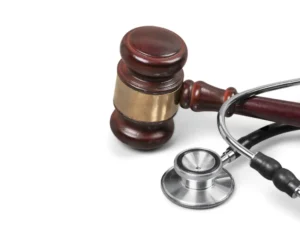Will My Personal Injury Case Go to Trial?~2 min read
If you were injured in an accident and have a pending personal injury case, you are quite curious about whether your case will actually go to trial. Recent statistics show that approximately 95 percent of personal injury cases settle out of court. That means only about 5 percent find their way to the courtroom. There are reasons why some cases settle, and why others require proving the case in court.
Most Common Reasons for a Case to Settle Before Trial

There are good reasons for a case to settle without going to trial. The most common ones are:
- The defense attorney believes that you will win the liability issue (who’s at fault) if there is a trial, so they want to avoid the expense of a trial and settle the case for a reasonable amount.
- The negligence is egregious, and the defense believes there may be a chance that punitive damages are awarded.
- The injuries are severe in a situation where it was clearly the defendant’s fault.
- Retaining experts makes the development of the case cost prohibitive.
Reasons Why a Case Will Go to Trial
There are always a few cases that make their way to the courtroom. Some reasons for this include:
- Liability is contested and the defense believes that the plaintiff may be found solely, or partially, at fault.
- The settlement amount demanded by the plaintiff’s attorney is too high.
- The plaintiff may want the case to be heard publicly to hold the defendant accountable for his or her egregious, negligent actions.
- The insurance company does not want to set a precedent of settling the type of case that is at issue.
- There is a real dispute over the value of the damages to be awarded in the case.
- The last offer from the defendant to settle the case is too small to pay off medical expenses, attorney’s fees and expenses and, award plaintiff a reasonable amount.
Factors Both Sides Consider When Deciding to Settle or Go to Trial
Some factors that both sides consider when deciding to settle or go to trial include:
- The severity of the plaintiff’s injuries.
- Whether the plaintiff will need ongoing medical and rehabilitation.
- The cost of past and future medical expenses.
- The plaintiff’s loss of earning capacity after the occurrence.
- The permanent nature of plaintiff’s impairment and injuries.
- Whether there is a liability dispute as to who caused the incident.
For assistance with your personal injury claim, contact our personal injury attorneys at Springer & Lyle to schedule a free consultation. You may also call us at 940-387-0404.






